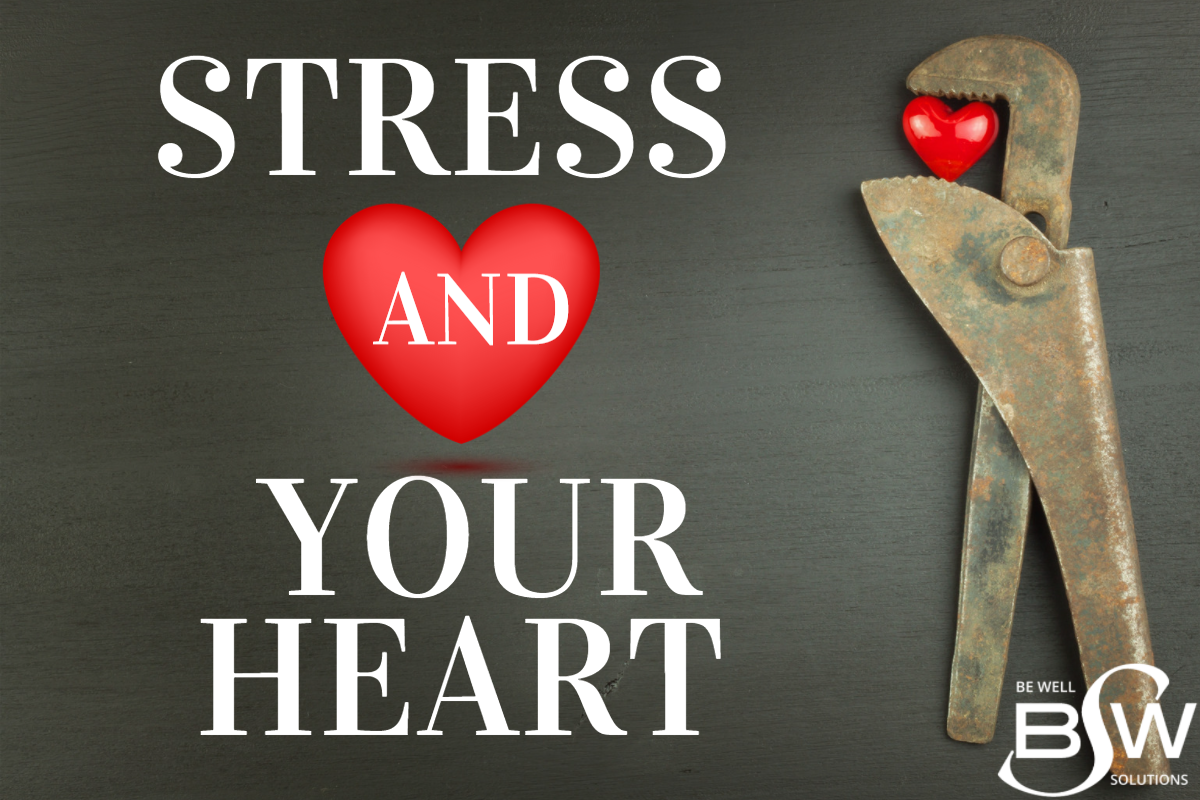
When we think about heart health, we typically think about habits involving exercise and nutrition. While these both have a huge impact, the effects of stress on the heart often get overlooked. Stress is something that most of us deal with daily. Taking time to manage our stress can greatly improve heart health and lower the risk of adverse effects. When it comes to stress, it is necessary to explore types of stress, how it affects the body, and how to better manage it.
Acute vs. Chronic Stress
Acute stress stems from a short-term, immediate stressor. It sparks our body’s “flight or fight” response and produces stress hormones (adrenaline and cortisol) which cause elevated heart rate, increased breathing, and contracted muscles that are ready for action. It’s natural for our bodies to have this acute response to stress because it can protect us in an emergency. Chronic stress is a term used when the body is under stress for a prolonged period. Typically, once a stressful situation has passed, our body’s hormone production returns to normal. However, with prolonged or constant stress, the body will continue to produce stress hormones, which can negatively affect all systems of the body.
How Stress Affects the Heart
Stress can affect the heart in several different ways. Studies have found that there is a relationship between elevated levels of the stress hormone cortisol and an increased risk of developing high blood pressure (American Heart Association). Chronic stress has been found to increase plaque build-up in arteries and can cause vasoconstriction, or narrowing of the arteries (Cleveland Clinic). Stress can also indirectly affect the heart based on how we choose to manage it. During stressful situations it is common to cope by pouring one more cocktail, eating a few more cookies, or binging an entire television series. Not only do these coping habits affect our day-to-day nutrition and nightly sleep, but they increase the risk of high blood pressure, diabetes, high cholesterol, and obesity. All of these are large risk factors for heart attack and stroke.
Heart-Healthy Stress Management
We just reviewed how poor stress management habits can negatively impact heart health. Let’s take a closer look at healthy stress management options that will have a lasting impact.
Regular Exercise. A consistent routine of exercise can help lower cortisol levels and boost the production of those natural feel-good endorphins. Exercise is great for better sleep, and it is one of the best ways to manage blood pressure. Even if you do not have a regular exercise routine, start small by adding a 5-to-10-minute walk into your day.
Relaxation Techniques. There are a wide variety of relaxation techniques, from deep breathing to meditation. It does not have to be one size fits all; you should pick what resonates with you and your schedule the best. Deep breathing techniques like the 4-7-8 method, along with stretching, relaxing music, and guided meditations, are all great ways to manage stress by practicing being present and mindful. Mindfulness helps when your focus dwells on past or future worries and stressors. It allows you to think about your response and manage stress more clearly.
Good Sleep. A bedtime routine, even a short one, can help you power down from the day and allow your mind and body to prepare for sleep. Take a few minutes before bed to listen to calming music, read, stretch, or simply allow your body to be still. These practices can be very beneficial in getting a good night’s sleep. Turning off screens at least 30 minutes before bed is another great way to encourage restful, uninterrupted sleep.
Healthy Eating. A balanced diet of fruits, vegetables, lean proteins, and whole grains can help manage blood pressure, increase energy, and reduce inflammation. Taking time to think about what, when, why, and how much you are eating will help you be more mindful of your choices. Think about limiting caffeine, which can cause stressful situations to seem more intense. Planning healthy meals and snacks when you are on the go can also decrease financial stress. If you notice a change in your eating habits or more emotional eating, take a moment to identify that change and healthfully address that stressor.
Remember it is nearly impossible to get rid of stress, but you can control your stress response. Choose to have a healthier response today. Your heart will thank you!
Continue reading February 2022 Newsletter: Heart Month 2022
Written by BWS Lead Health Coach- Kelly Schlather, BS, ASCM – CEP
